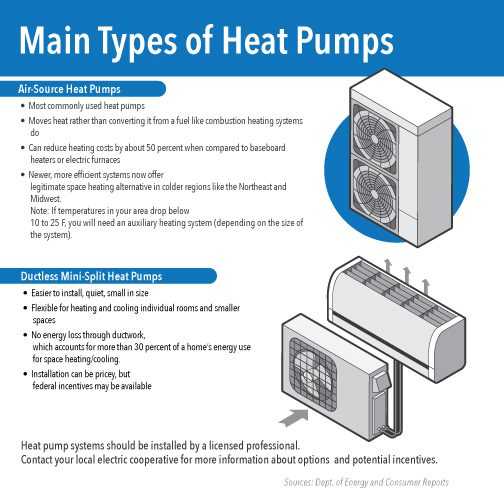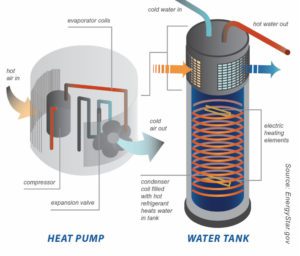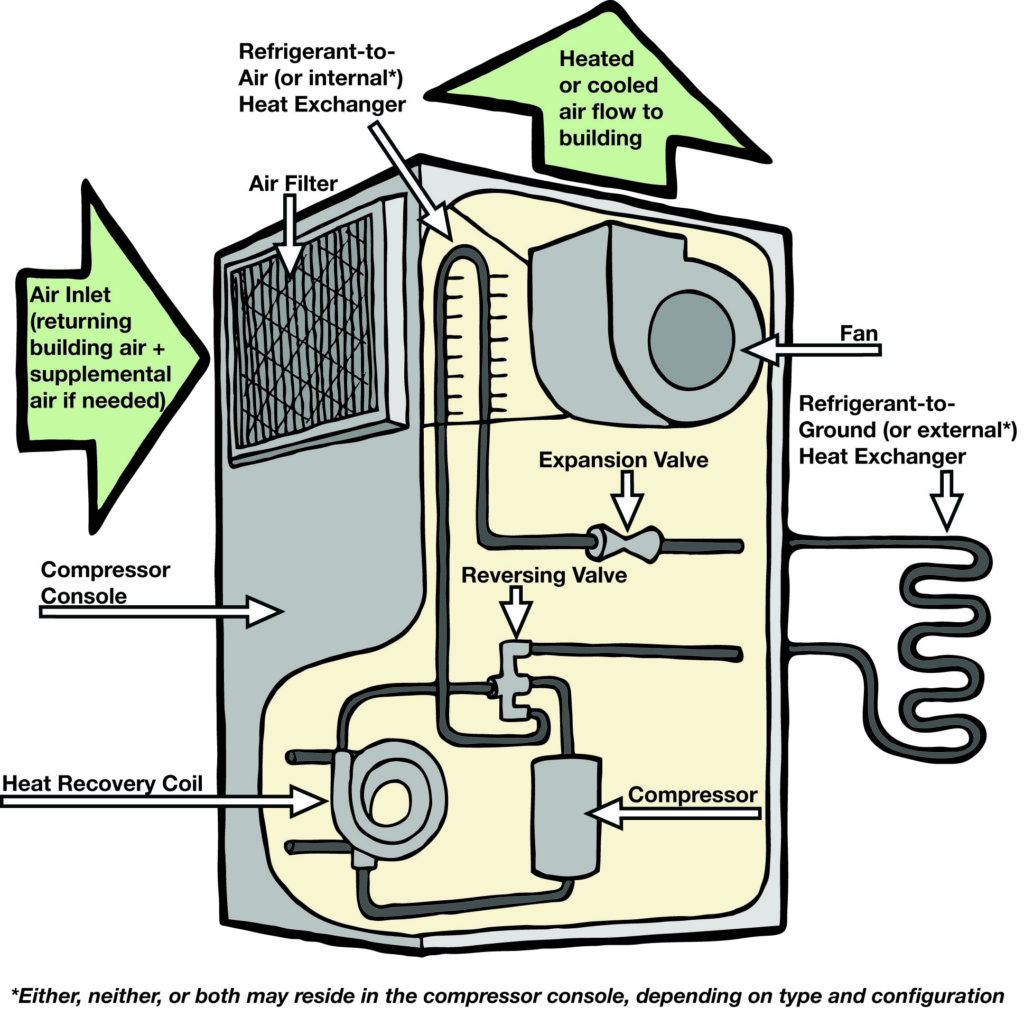Heat Pumps Save Energy & Money!
 High-efficiency heat pump appliances often use half of the electricity of conventional electric heating sources and can save you big on energy bills over the years. Now is a great time to upgrade and save with rebate incentives available to fit most any home.
High-efficiency heat pump appliances often use half of the electricity of conventional electric heating sources and can save you big on energy bills over the years. Now is a great time to upgrade and save with rebate incentives available to fit most any home.
What kind of heat pump appliances are available?
There are many kinds of heat pumps available on the market today for both space heating and water heating (the top 2 energy uses in the home). For space heating, the most common are ducted air-source and ductless heat pumps. Each can reduce heating energy use by up to 50%, plus they provide air conditioning as well!
High-efficiency heat pump water heaters (HPWH) are also available and can save up to $550* a year on electricity costs for a family of four. At $2,000 for the average cost of appliance and installation for a 50-gallon HPWH, the payback is approximately 3.6 years. Add in a $800 rebate from the PUD and you’ll be saving money even faster. *Estimate based upon national average of $.146cents/kWh. Jefferson PUD customer currently pay $.112cents/kWh.
Why is energy-saving important to the PUD?
The Bonneville Power Administration (BPA) provides incentives in the form of rebates to encourage its customers to reduce demand by improving efficiency in their homes and businesses. Reduced demand for electricity offsets the need for the construction of costly new power plants or the purchase of additional electricity from other wholesalers.
Energy savings also help reduce peak loads. Peak loads refer to the time when the most energy is being used at the same time by customers on the grid. Early winter mornings usually see the highest peaks, from 6–8am, when outside temperatures are at their lowest and most residents are waking up and turning on lights and heat, taking showers, making coffee and toast, and businesses are gearing up for the day’s work. A similar peak occurs in the late evening when most customers are home.
A study by the BPA and Energy Departments Pacific NW National Laboratory (PNNL) determined a 90% reduction of evening peak load power between heat pump water heaters versus conventional electric resistances water heaters. 

How do heat pump water heaters work?
Heat pump water heaters are designed to work with your existing plumbing and electrical system, and they work much like a refrigerator, but in reverse. Essentially, heat pumps move heat rather than generate it.
The act of moving heat from one location to another within the appliance, rather than generating the heat directly inside, accounts for an energy savings of up to two to three times.
For a heat pump water heater, air surrounding the appliance is pulled in while a fan blows it across coils filled with refrigerant. Heat absorbed in the refrigerant is then compressed and pressurized (the force greatly increasing the captured heat) before entering loops through the water tank. The heated fluid travels through the surrounding water inside the tank before exiting to start the process again.
Interesting note: Purchasing the largest heat pump water heater tank size possible can help maintain the lowest bill. Undersized tanks may cost less upfront, but the smaller size can reduce the efficiency advantage of the heat pump.
How can you save on a heat pump water heater for your home?
Rebate incentives are available for customers upgrading from a conventional water heater or furnace system on a first come, first serve basis. Rebate amounts are based upon the size and type of heat pump being professionally installed in your home, with the rebate savings being automatically deducted from the cost by your installer.
The PUD provides energy efficiency rebates for many home upgrades, all available. Check out the full list of rebates here: https://www.jeffpud.org/rebates/